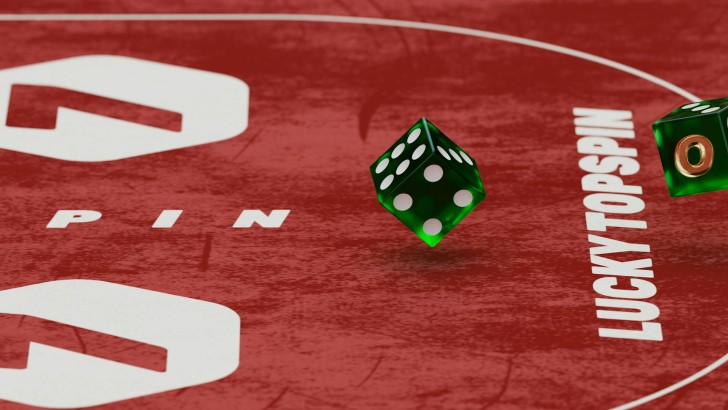This isn't just wishful thinking; it’s the reality of gamification, and it’s completely transforming the online casino experience, especially for traditional table games.
The Evolution of Engagement
The core of traditional online gambling has always been the chance to win money. While that thrill will never fade, today’s players expect more than static digital interfaces. They’ve grown up with video games that reward every single interaction, and the casino industry is responding by borrowing these clever engagement techniques.
This shift means that the very act of playing is becoming more rewarding, regardless of the outcome of a single hand or spin. It's about blending the competitive nature of gambling with the satisfying, progression-based loops of modern video games. For instance, platforms are integrating features that celebrate milestones beyond just hitting a jackpot, ensuring players feel recognized for their loyalty and the time they spend on the site. You can explore innovative approaches to table game engagement on the Xon Bet platform, for example.
What is Gamification, Really?
At its heart, gamification is the application of typical elements of game playing—like point scoring, competition, and rules of play—to other areas of activity. In the context of online casinos, this means taking the basic structure of a table game and layering on extra, non-monetary incentives.
This layer of incentives makes the experience more engaging and encourages sustained player interaction. It turns a one-off session into part of a larger narrative of personal achievement.
Core Gamification Mechanics
Gamification isn't just a single feature; it's a suite of design techniques aimed at driving behavior. The success of this approach lies in appealing to the human desire for achievement and recognition.
Here are the key mechanics driving this transformation in table games:
- Experience Points (XP) and Levels: Players earn XP for every hand played or tournament entered. Accumulating XP leads to leveling up, which often unlocks access to exclusive tables or better loyalty rewards.
- Challenges and Quests: Daily or weekly tasks (e.g., "Win three hands of roulette in a row," or "Play 50 hands of blackjack") provide specific, short-term goals that encourage diverse gameplay.
- Leaderboards and Competition: Public rankings showcase top players, tapping into the natural competitive spirit and encouraging players to return to maintain their standing.
- Badges and Achievements: Digital trophies earned for reaching specific milestones (e.g., "High Roller" for betting a certain amount, or "Master Strategist" for a certain win/loss ratio).
- Virtual Currencies and Stores: An in-game currency, separate from the cash bankroll, is earned through quests and can be spent in a virtual store for avatars, table backgrounds, or bonuses.
How It Transforms Classic Table Games
Gamification fundamentally alters the user experience by changing the focus from purely monetary risk to a balance of risk and reward tied to progression.
In games like Blackjack, a classic game of skill and chance, gamification adds a layer of depth. Instead of simply playing against the house, you're competing against others on a leaderboard for the highest cumulative win streak. Daily challenges might reward players for utilizing specific strategies, encouraging them to think more critically about their play.
For Roulette, a game of pure chance, gamification injects purpose beyond the wheel. Players might earn a unique badge for covering every number on the board in a single session, or they could participate in jackpot races where every spin contributes to a communal prize pool, adding a powerful social element to an otherwise solitary game. This shifts the focus from simply waiting for a win to actively participating in a continuous event.
The Strategic Advantage of Progression
The beauty of a well-gamified platform is that it provides small, consistent psychological wins. While a loss on the table can be discouraging, the player still earned XP, completed a quest, or moved up a tier in a loyalty program. This continuous feedback loop cushions the impact of losses and maintains motivation.
Furthermore, this model allows casinos to deliver personalized experiences. By analyzing which quests or leaderboards a player engages with most, the platform can tailor future incentives, making the experience feel uniquely designed for them. It’s a powerful tool for building brand loyalty.
The Necessary Evolution of Online Gaming
The integration of gamification isn't a temporary trend; it’s a necessary evolution driven by player demand for richer, more engaging digital experiences. The line between traditional online gambling and competitive video gaming will continue to blur, leading to immersive environments, skill-based challenges, and stronger social components integrated directly into the core gameplay. For players and the industry alike, the future promises a blend of strategy, competition, and satisfying progression that makes every moment at the table count.
The seamless blend of classic casino excitement with modern video game mechanics is here to stay, creating a compelling reason for players to choose platforms that reward not just luck, but also dedication and engagement. The takeaway for players is clear: seek out platforms offering these progressive mechanics for greater value and enjoyment. The next time you sit down, look beyond the chips—you might find a whole world of achievements waiting to be unlocked.
 Peter Smith
Peter Smith

 Peter Smith
Peter Smith


